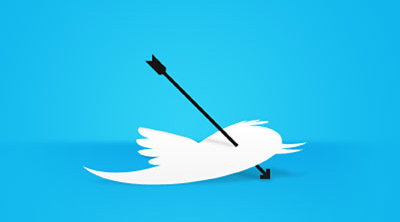What do Facebook and Twitter combine?

The Hunter Biden case highlighted the two different approaches of intervention of Facebook and Twitter
Deciding who can say what online is a complex business at best, and the 2020 US election is showing social media platforms just how complicated it can be.
The key issue is balancing concerns about disinformation, hacking and foreign meddling with the principles of free speech especially in real time in the midst of a political dispute.
THE HUNTER BIDEN CASE
Facebook and Twitter were quick enough this week to narrow the scope of Hunter Biden's story: the problem resurfaced following a New York Post article centered around an alleged email in which a Ukrainian energy company adviser thanked. Hunter Biden for inviting him to meet his father, as the BBC recalls.
THE RIGHT AND LEFT REACTIONS
But the intervention of the two popular social networks showed the world what an aggressive policy against disinformation on social media platforms can look like. On the right, pundits shouted "censorship" with members of Congress ready to ask CEOs for more testimony to defend their choices.
On the left, observers are concerned about the "Streisand effect": the idea that trying to suppress or remove information online can only attract more attention.
"In newsrooms, the prospect of tech companies reducing the distribution of newspaper articles gave chills to reporters, even those with deep doubts about the quality of the New York Post article," Axios pointed out.
THE TWO DIFFERENT REACTIONS OF FACEBOOK AND TWITTER
But how did the two social giants actually react? Facebook has decided to send the article to its third party partners for review. (The fact check is still in progress). Pending the report, the social network said it would limit the scope of the story to reduce the likelihood of spreading misinformation.
Twitter said, however, that some of the information contained in the story, including photos and personal information, is considered "hacked material" and has blocked the sharing of links to the article.
In both cases, companies reacted to criticism of their performance during the 2016 election – and responded to what appeared to be a “hack and leak” operation similar to the Democratic National Committee email theft that occurred that year.
FACEBOOK MESSAGES AND TWITTERS THAT MADE THINGS WORSE
“While conservative activists and politicians and some reporters protested their actions, many security and disinformation experts praised their quick response.
But the disclosed messages from companies about their moves made the situation worse.
Some of Facebook's fact checkin partners said they were surprised by the company's decision to reduce the scope of the Post story before the review, ” Poynter reads.
On Twitter , CEO Jack Dorsey tweeted: “Our communication around the actions on the @nypost article hasn't been great. And blocking the sharing of URLs via tweet or DM with zero context on why we're blocking: unacceptable ”.
Twitter then announced that it would revise its "hacked material" policy in response to the outcry caused by a ban on publishing the New York Post story.
THE MOST EFFECTIVE FB ANSWER THAN TWITTER
“Facebook's response to 'slow down the spread' seemed more conservative than Twitter's tactic of 'blocking the link', which infuriated users. But both moves looked messy. Three weeks after the elections for which they have been preparing for three years, the platforms still do not seem ready to take responsibility for their power ", he commented
Scott Rosenberg on Axios.
According to Rosenberg's comment, “these companies don't want to be the keepers of political news. They prefer to code, make money and feel comfortable 'connecting the world'. But their success has made them ubiquitous and dominated the distribution of news and information. Now they can't avoid making tough decisions. And they know that in that role, they will never satisfy everyone. But they are learning the hard way that they could do a better job of not making everyone angry. "
This is a machine translation from Italian language of a post published on Start Magazine at the URL https://www.startmag.it/mondo/che-cosa-combinano-facebook-e-twitter/ on Sat, 17 Oct 2020 15:15:55 +0000.
